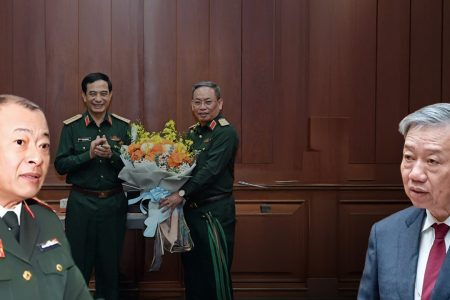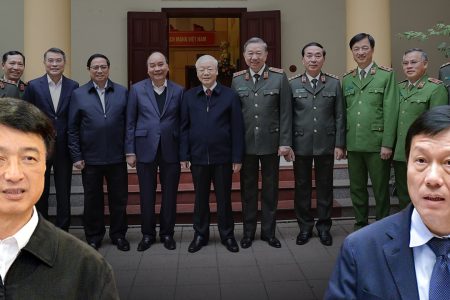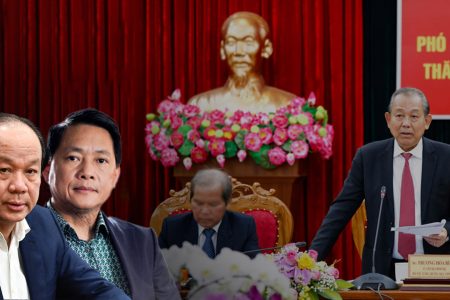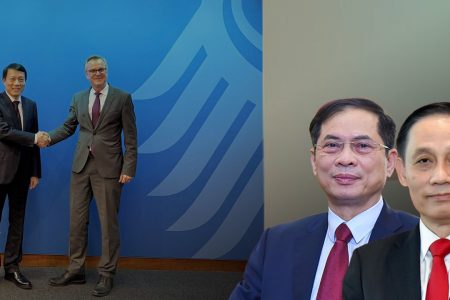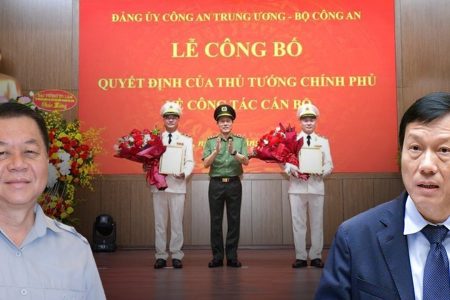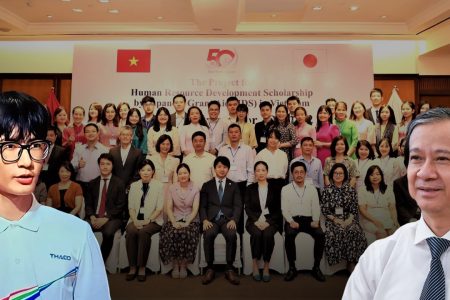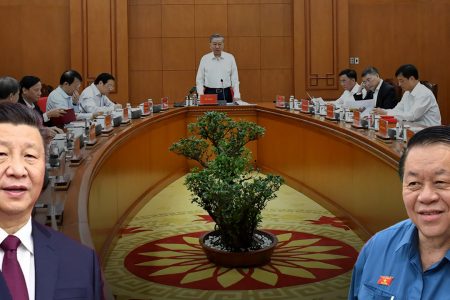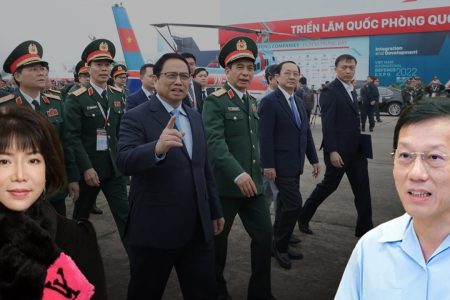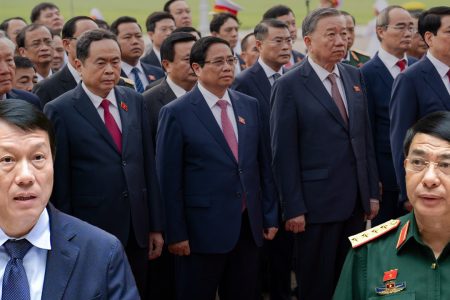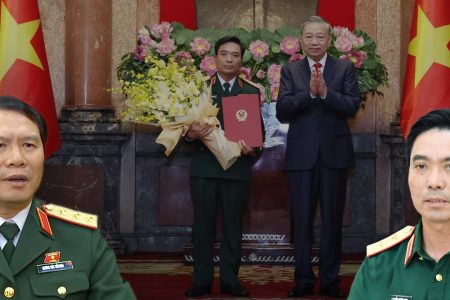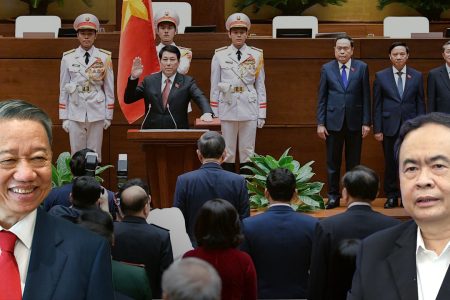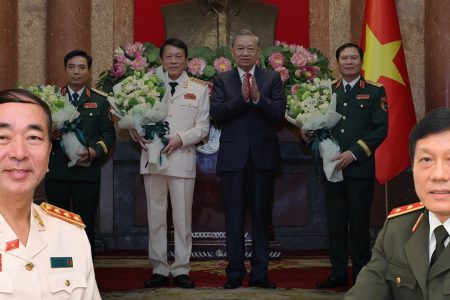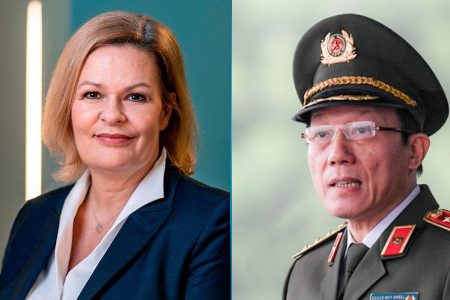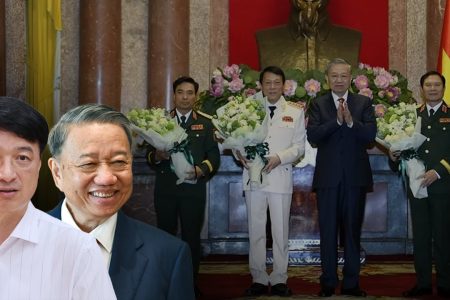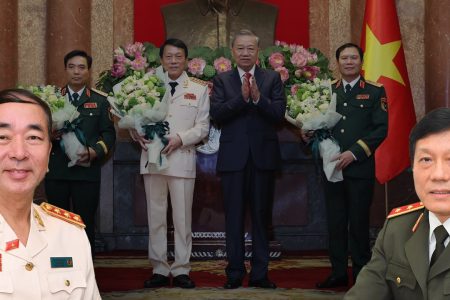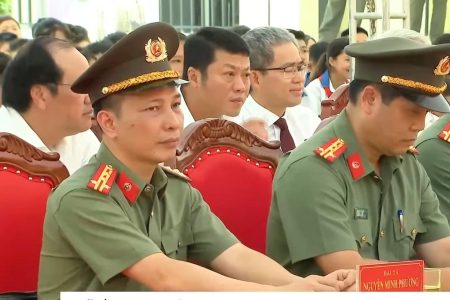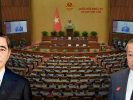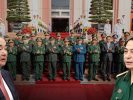
Cameras, smart phones flooded the operating room, where doctors were separating twins Dieu Nhi and Truc Nhi, raising questions about ethics and journalistic morality.
At 6 o’clock on July 15, the two babies Dieu Nhi and Truc Nhi, 13 months old, joined to the pelvic abdomen, were taken from the Neonatal Resuscitation Room to the operating room No. 11, Ho Chi Minh City Children’s Hospital. Here, 93 medical doctors and nurses divided into 11 crews will perform major surgery to separate the two babies.
It is a 13-hour operation, with many complex techniques, requiring high concentration of doctors and nurses.
In the context that the Vietnamese medical industry has received a lot of praise for dealing with the Covid-19 pandemic, this operation is considered to be another opportunity to promote the reputation of the Vietnamese medical industry and is very easy to understand it was widely publicized before it happened.
But many of the experts and foreign journalists have questioned why journalists can enter the operating room to do so.
The lenses in the operating room
The operation of separating twins in mid-July is almost directly reported on the online newspaper in Vietnam. In the images published in the middle of the operation, many mobile phones were held up, capturing every moment that took place on the operating table.
This has caused many critical reactions from experts and influencers on social networks. On his Facebook page, Dr. Vo Xuan Son, who has a large number of followeres on social media, wrote that some of the medical industry’s principles were broken.

“The first is the sterile principle in the operating room. I saw a picture. On that picture, while the crew was performing the operation, there were a series of phones, camera lenses were operated. That means there are many, many people present in the operating room when the separation of the two children was ongoing,” he wrote.
He emphasized that “any of our new employees who come into the operating room, must be trained on how to move. Even if a doctor comes to see the operation, we must pay attention to how they move, if not true, we still have to remind.”
Dr. Vo Xuan Son also noted how the press reported on “successful surgeries.”
“The next problem is to evaluate successful surgery. For most surgeons, when the surgery is finished, that is only the end of the first phase of treatment. The evaluation should be made after the postoperative period,” he explained, adding that a single case of twin babies is considered successful, sometimes it takes several years, even “a dozen, or twenty years.”
“Maybe for the sake of propaganda, because of the need to become famous (I’m not talking about the doctors involved in the surgery), because of the political mission … they have to make this surgery a noisy event. But for doctors, they should not be in a hurry, don’t let the media aura interfere with your treatment,” he noted.
In terms of journalism and journalistic ethics, Dr. Cait McMahon, director of Australia-based Dart Asia Center (under Columbia School of Journalism, New York, the US), shared with BBC News Vietnamese that she feels “concerned that there are so many journalists inside the operating room.”
Looking at a press photo we sent, Dr. Cait McMahon said: “In this picture, I can see four cameras or phones – more people taking this one so there were at least five journalists. I think that’s too many and they actually turned a complicated operation into a performance.”
“I am also concerned about the distractions of the surgeons and the risk of infection. However, if this surgery is worth reporting with the consent of the people involved and the guardian, the reporting is ok. But even then, morally, we should let a reporter and a photographer take care of it, not focusing as many as the picture I see,” said Ms. McMahon.

Freelance journalist Gary Tippet, who has for many years been the editor of The Age newspaper (Australia) and has experience in medical emergencies, also shared with BBC Vietnamese that although he did not object inviting reporters to report or witness operations like this, its use as a show, a marketing tool is “very worrying.”
“Based on the pictures I have, the journalists’ presence in the operating room separates two twins like what we call Australia in the ‘circus.’ Too many journalists are present and cameras, the phones are crowded, I think it could hinder the work of surgeons and other staff. If it was an operation with nearly 100 medical staff involved, the presence of journalists would be too crowded. Not being equipped with enough operating room knowledge can cause unsafe,” he said.
Journalist Gary Tippet added: “I think that only one or two reporters who have been carefully trained in the operating room safety rules are present. They can then share photos and information with other reporters.”
Not only is patient safety, but journalists “infiltrating” into hospitals in similar situations can also violate the patients’ privacy. The “British pilot” case, that is, patient 91 with Covid-19, is an example.
Mr. Joe Mathewson is a professor at Medill Integrated Journalism – Media and Marketing School of Northwest University (Evanston, Illinois, the US). He also belongs to Ethics AdviceLine for Journalists, who shared with BBC News Vietnamese: “If the patient does not agree to the disclosure, the journalist should carefully review whether his article violates the patient’s privacy. If so, journalists need to weigh between the public interest and the protection of that privacy.”
According to Joe Mathewson, if previous papers of other newspapers mentioned the name, workplace, hometown of patient 91 clearly, that is, it violated patient’s privacy, and “if your article is published later, even if it is generally referred to as ‘Scottish pilot’ or ‘a UK patient’, the reader will be able to identify the character. You would then have infringed upon the rights private“.
Is the hospital becoming a place for performance?
With the social development, Vietnamese hospitals are focusing more on communication and image promotion. If the “media department” and “marketing department” were once a strange concept in hospitals, now these are important departments in both private and public hospitals. Complicated cases were successfully exploited by many hospitals as materials for their image promotion activities, with the participation of the press.
However, this inherent common sense, sometimes, is exploited too much that many people fear. Under the journalist Ben Ngo’s post about the images of lenses from cameras and phones targeting the operation, some expressed concern that “people in medical uniforms are okay but cameras are not.” Someone said this was “advertising” so “skipped the principle of hygiene in the operating room.”

In the fight against Covid-19 from the beginning of the year until now, it can be seen that Vietnam’s health sector, including state management agencies and hospitals participating in testing and treatment, is very active in “take care of their image.”
Each of the Covid-19 patients successfully treated, they are given flowers, photographs and sometimes have to answer a press interview as an obligation.
In special cases, for example, when Chinese father and son were cured at Cho Ray Hospital in Ho Chi Minh City, the media and image promotion activities were organized more and more. On the day of discharge of this father and son, there were many fresh flowers, medical officials and doctors of the hospital appeared to shake hands, greet and answer interviews.
Especially the case of the pilot from the UK, ie patient 91 was treated with Covid-19 at the Hospital for Tropical Diseases in Ho Chi Minh City and rehabilitation treatment at Cho Ray Hospital. During a long hospital stay, this person has always been the material for breaking news on Vietnam’s epidemic prevention record. From lying motionless to gradually recovering, physical therapy, the image of the 43-year-old pilot has always been filled with newspapers, including the official information channel of the Government of Vietnam.
On the social networks and “non-mainstream” media channels, many people think that Vietnam’s health sector and hospitals have used the image of 91 patients for political propaganda purposes. This action is a violation of the patient’s privacy.
Prior to his discharge, the Scottish pilot himself expressed a number of aspirations, including a proposal to not contact the media when he was discharged, not taking pictures, or giving interviews with newspapers or radio. As soon as 91 patient’s wishes were announced, many angry reactions, claiming that he “did not know what” had appeared.
Talking about this case, Dr. Vo Xuan Son wrote on his personal Facebook page: “… When patient 91 becomes the focus of the media, there will be many people who want to be part of it, performing all kinds of things under the lens of journalists. To serve that need, people set up festivals and all that, and when patient 91 didn’t respond, they angrily let go of hateful words with him.”
And as a conclusion, Dr. Vo Xuan Son wrote: “I believe that physicians, from doctors to nurses, directly caring for patients 91, respect his decision. I believe that none of them was so angry with him about his refusal of taking part in a farewell ceremony and giving interviews, and if he did, I believed they were trying to appear to be involved in medical treatment this patient only.“
Thoibao.de (Translated)
Vietnamese Source: https://www.bbc.com/vietnamese/world-53496918



